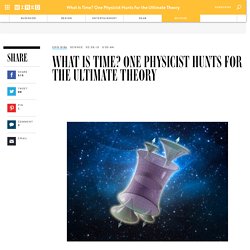

The Case for Parallel Universes: Scientific American. Editor's note: In the August issue of Scientific American, cosmologist George Ellis describes why he's skeptical about the concept of parallel universes. Here, multiverse proponents Alexander Vilenkin and Max Tegmark offer counterpoints, explaining why the multiverse would account for so many features of our universe—and how it might be tested. Welcome to the Multiverse By Alexander Vilenkin The universe as we know it originated in a great explosion that we call the big bang.
For nearly a century cosmologists have been studying the aftermath of this explosion: how the universe expanded and cooled down, and how galaxies were gradually pulled together by gravity. The nature of the bang itself has come into focus only relatively recently. Gorilla psychologists: Weird stuff in plain sight - opinion - 28 June 2010. Book review: Six intuitions you shouldn't trust The "gorilla in our midst" psychology experiment is up there among the world's most famous.

But as Liz Else found out from Christopher Chabris and Daniel Simons, the psychologists who devised it, exactly how it fools half of the people who take part is still a mystery How did you come up with the experiment? Christopher Chabris: We didn't say, "let's do a really intriguing experiment people will talk about for years". It was just a class project on visual attention in a course we were teaching 12 years ago. What Is Time? One Physicist Hunts for the Ultimate Theory. SAN DIEGO — One way to get noticed as a scientist is to tackle a really difficult problem.

Physicist Sean Carroll has become a bit of a rock star in geek circles by attempting to answer an age-old question no scientist has been able to fully explain: What is time? Here at the annual meeting of the American Association for the Advancement of Science, where he gave a presentation on the arrow of time, scientists stopped him in the hallway to tell him what big fans they were of his work. Carroll sat down with Wired.com on Feb. 19 at AAAS to explain his theories and why Marty McFly’s adventure could never exist in the real world, where time only goes forward and never back.